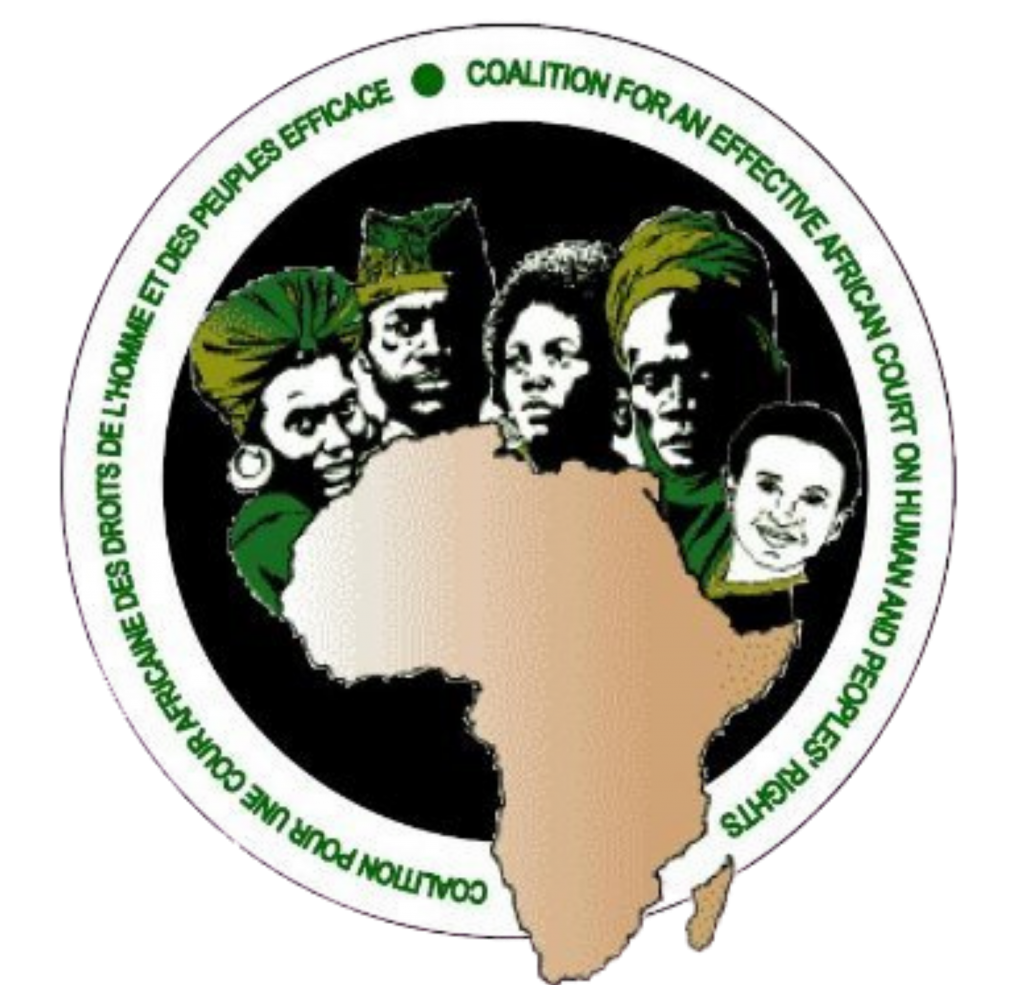
Who We Are
The Coalition for an Effective African Court on Human and Peoples’ Rights (the African Court Coalition) is a membership-based organisation made up with Civil Society Organisations, independent human rights institutions, and individual members. The Coalition was formed during the first conference for the promotion of the Protocol to the African Charter on Human and Peoples’ Rights establishing the African Court on Human and Peoples’ Rights in Niamey, Niger in May 2003. The Coalition was formally registered as an NGO in Tanzania in September 2007, its Secretariat is in Arusha, Tanzania where the African Court is also based.
The key purpose for the establishment of the Coalition is to advocate for an effective and independent African Court on Human and Peoples’ Rights in order to provide redress to victims of human rights violations and strengthen the human rights protection system in Africa.
The Coalition believes in access to justice for all, particularly individuals. In light of the complimentary relationship between the African Commission on Human and Peoples’ Rights and the African Court, the Coalition works towards a strengthened complementary relationship between the two Institutions.
Our Vision
An independent African Court on Human and Peoples’ Rights that is effectively serving and recognized by all the peoples of Africa and their states.
Our Mission
To mobilize and coordinate the diverse stakeholders of the African Court to support building of an institutionally strong and independent Court that delivers effectively and efficiently on its mandate.
Our Objectives
- To achieve full ratification of the African Court Protocol; and promote deposit of Article 34 (6) Declaration of the African Court Protocol by all State parties to allow direct access to the African Court by individuals and NGOs;
- To build capacity for legal practitioners and CSOs to enable them litigate and engage with the African Court
- To monitor, advocate for, and influence implementation of decisions of the African Court by State parties
- To enhance transparency in the nomination and election of judges of the African Court;
- To provide a platform for sustainable participation by civil society in the work of the African Court;
- To promote for a strengthened complimentary relationship between the African Court and African Commission
- To provide technical support to the African Court;
- To create general awareness and publicise developments of the African Court.
Our Background
The initiative began as a loose network with two secretariats housed at Alliances for Africa (Lagos) and the Human Rights Institute of South Africa (Johannesburg) in 2004. It comprised a Management Committee made up of representatives from nine NGOs, namely:
- The Arab Centre for the Independence of the Judiciary and the Legal Profession (North Africa focal point)
- Foundation for Human Rights Initiative (East Africa focal point)
- Association pour les Droits de l’homme et l’univers Carcéral (Central Africa focal point)
- Legal Assistance Centre (Southern Africa focal point)
- The International Centre for the Legal Protection of Human Rights (INTERIGHTS – AU Liaison)
- Rencontre Africaine pour le Defense de Droits de l’Homme (RADDHO) (West Africa focal point)
- Open Society Justice Initiative (AU liaison)
- Cape Verdean Association of Women Lawyers (Portuguese-speaking Africa advisor)
- Institute for Human Rights and Development in Africa (Focal point for National Human Rights Institutions).
Our Structure
-
General Assembly
The General Assembly is the highest policy-making body which meets every three years to elect the Executive Committee and Focal Points. - Executive Committee
The Executive Committee comprising of 9 members, provides guidance on policy and strategic advocacy to the Secretariat and oversight on activities.
The current Executive Committee consists of the following member organizations:
- Tanganyika Law Society (Chairperson)
- Centre pour la Promotion de la Démocratie et le Défense des Droits de I’Homme (Deputy Chairperson)
- Avocats Sans Frontières (Senegal)
- Centre des Droits de l’Homme et du Développement
- East Africa Law Society
- Pan-African Lawyers Union
- Southern Africa Litigation Centre
- Zimbabwe Lawyers for Human Rights
- Sub-Committees:
Finance and Administration Sub-Committee:
- Membership Sub-Committee:
- Centre des Droits de l’Homme et du Développement
- Southern Africa Litigation Centre
- Legal Affairs Sub-Committee:
- Avocats Sans Frontières-Senegal
- Pan-African Lawyers Union
- Secretariat:
The Secretariat which is based in Arusha, Tanzania, has a team structured with one department and three programs: The Finances and Administration Department, Advocacy and Capacity Building Program, Researches, Litigations and Publications Program and Internship Program.
The Focal Points and the Secretariat constitute the implementing arm of the Coalition.
Focal Points
There are five geographical Focal Points of Africa, namely East Africa, Southern Africa, West Africa, Central Africa, North Africa and two thematic focal points, namely National Human Rights Institutions and Portuguese-speaking countries.
Focal points, in addition to attending events at AU level, will also attend summits and pre-summit civil society activities of the Regional Economic Communities in order to raise awareness on the African Court, to recruit members from the sub-region and raise key issues relating to the protection of human and peoples’ rights.
The current Focal Points are as follows:
1. Centre d’Information et de Documentation sur les Droits de l’Enfant et de la Femme, Algiers, Algeria (North Africa)
2. Associação Justiça, Paz e Democracia, Luanda, Angola (Lusophone)
3. Association de Droits de l’Homme et l’Univers Carcéral, Brazzaville, Congo (Central Africa)
4. Somaliland Lawyers Association, Hargeisa, Somaliland (East Africa)
5. Institute for Human Rights and Development in Africa, Banjul, the Gambia (National Human Rights Institutions)
6. Legal Defence and Assistance Project, Lagos, Nigeria (West Africa)
7. Zimbabwe Human Rights NGO Forum, Harare, Zimbabwe (Southern Africa)
Constitution and Strategic Plan
The Coalition’s Constitution was adopted and the organization was formally registered as an NGO in Tanzania in September 2007.
